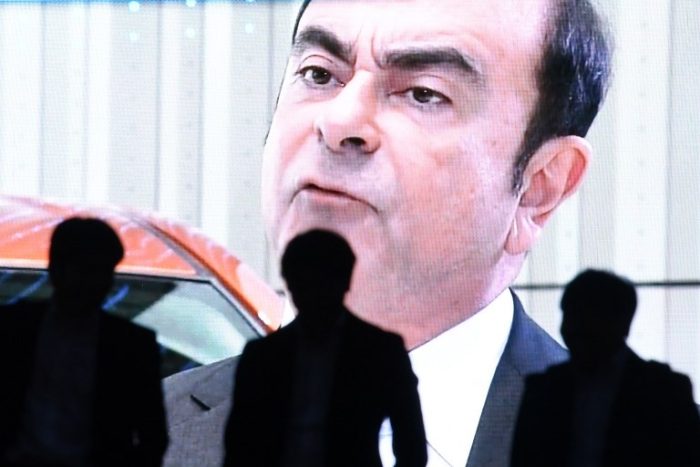Published in the Nikkei Asian Review 6/12/2018
The tremors are still being felt from the recent arrest of Carlos Ghosn, chairman of Groupe Renault, Nissan Motor and Mitsubishi Motors, at Japan’s Haneda Airport. Much remains unclear about the legal case against him, but the failures of corporate governance at both Nissan and Renault are glaring. If the right steps are taken to improve governance structures in Japan and elsewhere, there might yet be a positive outcome from this sorry business.
Ghosn is one of the world’s most prominent businessmen and a regular at the World Economic Forum’s annual gathering at Davos. He made his name by restructuring Nissan, which had been on the verge of bankruptcy in the late 1990s. At the time the Japanese banking system was lurching from crisis to crisis, so the capital injection by Renault, itself just emerging from full state control, came as manna from heaven for the beleaguered Japanese carmaker.
As chief operating officer, Ghosn took the tough decisions – closing down production lines and reducing the number of suppliers – that Nissan’s consensus-hugging management had jibbed at. He deserved the acclaim he received and as CEO made sensible decisions in tackling the challenges of the Chinese market and EV (Electric Vehicle) development.
As is often the case, governance is rarely an issue when everything is going well and the individual at the top is being lionised by the world’s media. In retrospect, the warning signs were obvious. By 2009, Ghosn had taken over both the chairman and CEO roles for both Nissan and Renault, thereby creating a mass of potential contradictions and conflicts of interest.
At the press conference given after the Ghosn arrest, current CEO Hiroto Saikawa expressed “resentment and despair” at what he called “the dark side” of the Ghosn era. And since then the Japanese press has been filled with titillating details of Ghosn’s financial excesses, which seemingly dated back many years. If so, why didn’t Saikawa and the other directors rein in their allegedly errant CEO, as is the proper function of a board of directors?
The answer is obvious. CEO Carlos Ghosn was accountable to a board of directors led by Chairman Carlos Ghosn. Furthermore, ultimate control was in the hands of Renault by virtue of its 43.4% stake in Nissan. Despite the fact that Nissan is by far the larger company in terms of production, profits and stock market value, in financial terms it is effectively a subsidiary of Renault. Thus Ghosn of Nissan reported to Ghosn of Renault. At Renault too, CEO Carlos Ghosn was accountable to a board of directors led by Chairman Carlos Ghosn. It is no surprise to learn that there was no remuneration committee at Nissan. Ghosn decided what Ghosn should be paid – and what the other directors were paid too.
Ghosn had become the Emperor of a vast multi-national automobile conglomerate. How could his power be checked? Not by any normal processes of corporate governance. The only hope was the new protection given to whistle blowers by reforms introduced by Prime Minister Shinzo Abe. Particularly useful to the Nissan dissidents was the legal immunity available to providers of incriminating testimony.
A few simple governance reforms could ensure that a similar debacle does not recur. First, splitting the role of CEO and chairman should be compulsory, rather than merely expected as at present. Even Elon Musk seems to have accepted that he cannot take the lead in supervising himself.
In Japan’s case, at least half the directors should be independent non-executives too, as corporate insiders are likely to be too beholden to factions and leader-figures
Secondly, there should be restrictions on listed companies having large stakes in separately listed affiliates and subsidiaries which they effectively control. In Japan, these are known as “parent and child listings.” In recent years the practice has been frowned on by the Tokyo Stock Exchange and several conglomerates have either reduced stakes in or completely absorbed their “child” companies.
However, the practice has not been forbidden and investors are about to be confronted by a huge and egregious new example – the imminent stock market debut of SoftBank Corp, the mobile communications unit of SoftBank Group, which will retain 66.4% of the equity after listing. In such circumstances, independence can only be a mirage and the potential for conflicts of interest is huge.
Thirdly, there is the question of inequality of shareholder rights, as enshrined in France’s “Florange law,” which gives double the voting power to long-term investors. The intention may be good – in reality, tax breaks could incentivize long-term investment just as well – but the result is to marginalize ordinary investors and embed the dominance of founding families, big institutions and the French State, whose 15% stake in Renault gives it 30% of the votes. Worse still are the privileged positions of tech magnates like Facebook founder Mark Zuckerberg, one of whose shares are worth ten of anybody else’s.
As the Ghosn scandal shows, the perils of lousy corporate governance are a global ill. So far nobody is emerging from it with any credit. Prime Minister Abe could do so if he were to clamp down on these abuses and set a shareholder democracy template that the rest of the world could follow.


